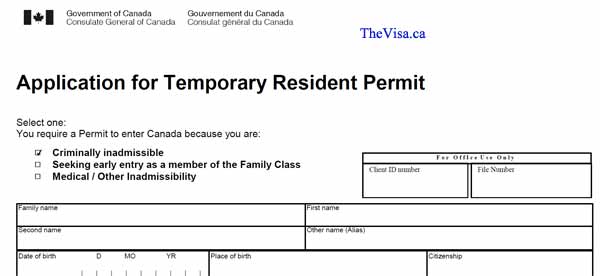Entering Canada with Wet Reckless
Most U.S. States have Wet Reckless rules in place to serve as a reduced charge for first time impaired driving offenders. To plead down to a Wet Reckless charge, the offender must have tested for a blood alcohol concentration near but not exceeding the legal limit (.08%) and have no previous record. However, if there was an accident, it is not possible to get the reduced charge.
Despite Wet Reckless being a lesser charge, it is still treated as equivalent to a DUI under Canadian Law. This means that if you have a Wet Reckless arrest or conviction on record, it will be treated as an indictable offense and make you criminally inadmissible to Canada. Travelers to Canada will need to apply for either a Temporary Resident Permit (TRP) or Criminal Rehabilitation. Criminal Rehabilitation takes on average 6 to 12 months to process, but once you are approved you no longer need special permission to enter Canada. For a much quicker processing time, you could apply for a TRP, but certain restrictions will remain. You can enter Canada with a successful TRP application, but your permit will eventually expire.
Contact our team of experienced Canadian immigration lawyers and consultants today to explore your options for entering Canada.
Wet Reckless Penalties
In general, if you plead down to a Wet Reckless charge, it will result in lower fines, no jail time, and no record of a drunk driving conviction. The penalties are much lighter than a typical DUI (Driving Under the Influence) charge. The Wet Reckless charge has the potential to become a full-fledged DUI charge upon repeat offences. If you are charged with another DUI, you will not be able to plead down and your previous Wet Reckless charge is treated as a DUI as well. The consequences of this are much harsher penalties in general.
What is the Difference between Wet Reckless and Dry Reckless?
The "wet" in Wet Reckless refers to the presence of alcohol in the offenders system at the time of arrest. Therefore, if you were not under the influence of alcohol you may be able to plead down to a Dry Reckless charge. Because the Dry Reckless charge is not alcohol related, it may not have an equivalent in Canada's Criminal Code. A Dry Reckless conviction might still be interpreted as equivalent to Section 249 (1) in Canada's Criminal Code, referred to as Dangerous Driving. Dangerous Driving in Canada has the potential to be an indictable offense, and as such, Dry Reckless could still be treated as a criminal inadmissibility resulting in denial of entry.
This applies to other driving related offenses as well, such as: Improper Driving, Reckless Endangerment, Negligent Driving, Careless Driving, and Driving Without Due Care and Attention.
If you are planning to travel to Canada with a Wet Reckless, Dry Reckless, or any other driving related offense, contact us today for a consultation. Our team of experts (Lawyers and consultants) can help determine the best steps to take in overcoming your inadmissibility.

